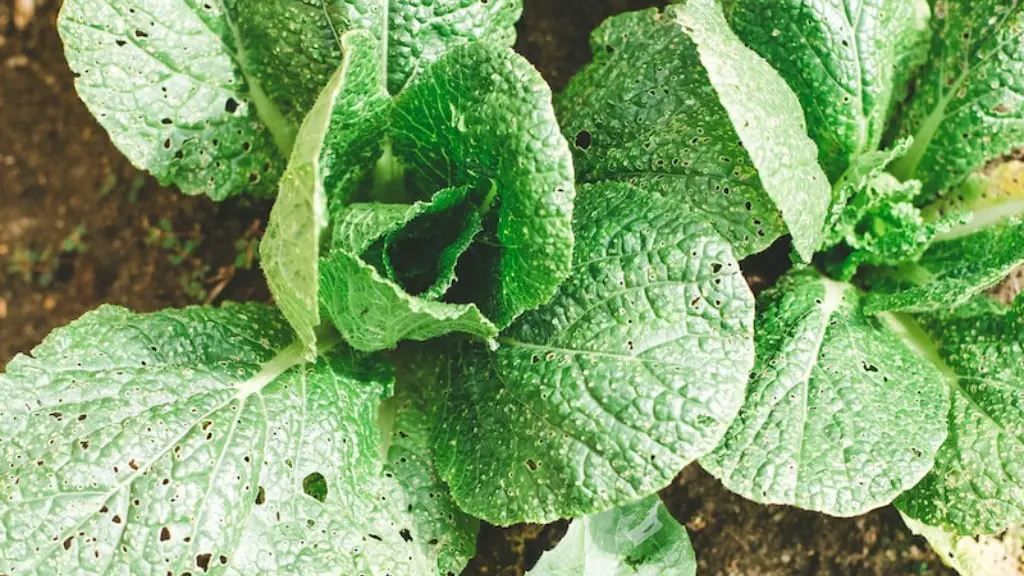Small-scale farming can be an important source of livelihood for rural populations around the world. To ensure that it continues to be an effective tool for sustainable development, there are steps farming communities can take to improve their agricultural practices. These include: increasing access to improved varieties of seeds, adopting improved management practices, diversifying production systems, and strengthening value chains.
Improving access to improved varieties of seeds is a crucial step in promoting small-scale agriculture. Farmers should learn to select varieties that are suitable to their environmental conditions, adapt to climate change, and provide higher yields. Subsidies, seed supply networks, and agricultural extension services should be provided to enable this access in the communities.
Adopting improved management practices is also essential for small-scale agriculture to thrive. Farmers should understand the importance of crop rotation, intercropping, and soil conservation. Applying fertilizers, crop protection measures, and managing irrigation can help increase production and protect against weeds and pests.
Diversifying production systems is key to ensure small-scale farmers maximize their production potential. Farmers should be encouraged to explore new varieties and technologies which best suit to their conditions. This is especially important in locations where monoculture systems have been adopted over the years.
Strengthening value chains can also aid in improving small-scale agriculture. Communities should strengthen their linkages with financial institutions, agri-businesses, and small and medium enterprises to ensure farmers have access to markets and inputs at a reasonable price. Fostering knowledge sharing and exchanges of ideas between farmers can also help them find new ways of maximizing their profits.
Increasing Access to Improved Varieties of Seeds
The availability of improved varieties of seeds greatly enhances the productivity and sustainability of small-scale agricultural production. Farmers should be encouraged to learn about these varieties and make use of them in their production cycles. Subsidy programs, seed supply networks, and agricultural extension services should be provided to enable access to these varieties.
Improved varieties are usually more expensive than traditional varieties, so farmers should be given access to financial instruments to purchase them. Cooperatives, credit facilities, and other support should be provided in order to allow access to these improved varieties.
In the developing world, there is a need to ensure that the enhanced seed offtake by small-scale farmers is done in a responsible and managed way. Quality of seed should not be compromised, as poor quality will not promote yield improvements; it may even lead to crop losses.
Access to improved varieties of seeds will empower small-scale farmers to adopt modern production practices that are both economically and environmentally sound. This, in turn, will improve yields, livelihoods, and the overall sustainability of small-scale agriculture.
Adopting Improved Management Practices
Management practices are essential for ensuring small-scale agriculture is successful. Farmers should be encouraged to adopt improved management practices which are tailored to their environmental conditions. These may include crop rotation, intercropping and conservation agriculture practices, such as use of cover crops, minimum tillage and crop residue management, and mulching.
The use of fertilizers, crop protection measures and irrigation management can help increase production and protect against weeds and pests. Farmers should be trained to use these techniques properly, and access to and information about the necessary inputs should be provided.
Small-scale farmers should also be educated on the advantages of sustainable farming practices, such as efficient water and energy use and soil conservation. These practices will not only result in higher yields, but they will also help keep soil fertile and protect the environment.
The integration of improved management practices in small-scale farming is essential for ensuring that farms can remain productive, sustainable and profitable in the long-term. Improved management practices can help farmers increase their yields, enhance their livelihoods, and protect their environment.
Diversifying Production Systems
Diversifying production systems is a key step in ensuring small-scale agricultural communities are able to thrive. Farmers should be encouraged to explore and experiment with new varieties, technologies and practices which best suit their conditions. This will help ensure that there is a greater diversity of crops available and that the loss of one or more crops is not a major shock to the farming community.
In areas where monoculture systems have been implemented, there should be incentives for farmers to diversify production and adopt more sustainable practices. This could be done through subsidies, improved access to inputs, and financial instruments that enable farmers to invest in new technologies and production systems.
Diversifying production systems can help small-scale farmers maximize their production potential and reduce the risk of crop losses due to drought, disease, pest infestations, or other environmental factors. Furthermore, diversifying production systems can also help to reduce poverty and hunger in developing countries.
The adoption of diversified production systems is essential for the development and sustainability of small-scale agriculture. Farmers should be encouraged to diversify their production systems in order to ensure their farms remain productive and profitable in the long-term.
Strengthening Value Chains
Small-scale farmers should be supported in strengthening their linkages with financial institutions, agri-businesses, and small and medium enterprises to ensure they have access to markets and inputs at a reasonable price. This will help them maximize their capacity to compete in a globalized market and ensure their production cycles are profitable.
Capacity building programs should be made available to small-scale farmers to help them understand the intricacies of modern market systems. This can include training in product processing, grading, packaging, and marketing, as well as sound business practices.
Encouraging knowledge sharing and exchanges of ideas between farmers is also essential for small-scale producers. It can help them understand the latest production and marketing trends and enable them to find new opportunities for maximizing their profits.
Strengthening the value chain of small-scale agricultural communities is essential to ensure their profitability and viability in the long-term. By providing access to financial services, inputs, markets, and knowledge, small-scale farmers can increase their production potential, improve their livelihoods and combat poverty and hunger.





